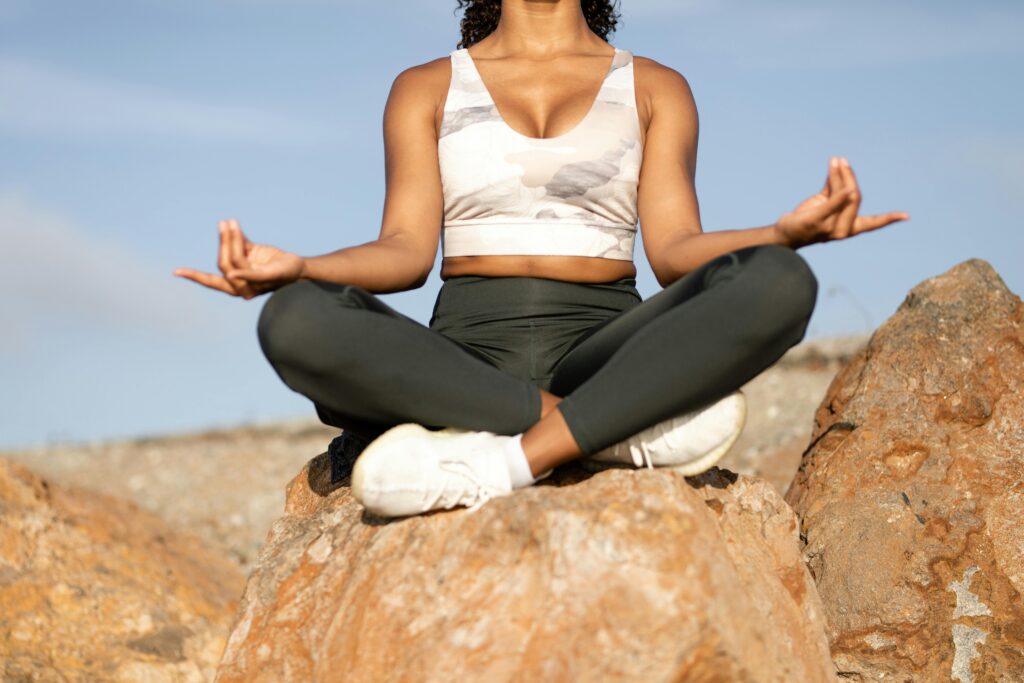
Discover natural and science-backed ways to reduce anxiety that can be easily incorporated into your daily routine. Learn how to manage stress, relax, and boost your mental well-being.
Anxiety is something that many of us experience at one time or another. It can feel overwhelming, like a storm cloud constantly hovering over us. Whether you’re dealing with social anxiety, generalized anxiety, or stress from daily life, it’s essential to know that you’re not alone. Many people across the world are looking for ways to reduce anxiety and enhance their mental health. The good news is that there are various proven techniques that can help calm the mind and relieve tension. In this article, we’ll explore these strategies in depth, helping you find the right solution to soothe your worries.
Understanding Anxiety: What Is It?
Before we dive into the ways to reduce anxiety, it’s essential to understand what anxiety is. Anxiety is a natural response to stress or danger. It’s our body’s way of alerting us to potential threats, helping us to stay focused and alert. However, when anxiety becomes chronic or overwhelming, it can interfere with daily life. This is when finding effective ways to manage it becomes critical.
Common symptoms of anxiety include:
- Racing thoughts
- Rapid heartbeat
- Sweating or trembling
- Difficulty concentrating
- Insomnia
With these symptoms in mind, let’s explore practical, scientifically proven strategies to manage and reduce anxiety.
1. Practice Mindfulness Meditation

One of the most effective ways to reduce anxiety is through mindfulness meditation. This practice involves focusing on the present moment and observing your thoughts and feelings without judgment. By training your mind to stay in the present, you can stop your thoughts from spiraling into stress and worry.
Numerous studies have shown that mindfulness can significantly reduce anxiety symptoms. In fact, a 2019 meta-analysis found that mindfulness-based interventions can lead to substantial reductions in anxiety, depression, and stress. To start, dedicate just 10 minutes a day to sit in a quiet space, focus on your breathing, and observe your thoughts as they come and go.
Tips for Practicing Mindfulness:
- Find a quiet space where you won’t be disturbed.
- Sit comfortably and close your eyes.
- Focus on your breath, noticing the sensations as you inhale and exhale.
- When your mind wanders, gently bring your focus back to your breath.
By making mindfulness meditation a daily habit, you’ll likely notice a significant improvement in your anxiety levels over time.
2. Engage in Regular Physical Exercise

Physical activity is another powerful tool for reducing anxiety. When we exercise, our body releases endorphins, which are natural mood boosters. These chemicals help combat stress and induce feelings of relaxation. In addition to the immediate sense of well-being that comes from exercise, regular physical activity can also improve your ability to manage stress in the long term.
Whether it’s running, swimming, dancing, or even a brisk walk, exercise helps reduce the tension that often builds up in your muscles due to anxiety. Research has found that aerobic exercise in particular can reduce anxiety levels. It doesn’t have to be anything intense—even moderate exercise can make a big difference in how you feel.
Exercise Recommendations:
- Aim for at least 30 minutes of moderate exercise five days a week.
- Try activities like yoga or Pilates, which combine physical movement with breathing techniques to promote relaxation.
- If you’re short on time, break your activity into 10-minute bursts throughout the day.
The key is consistency. Over time, you’ll likely see an improvement in both your physical health and your mental well-being.
3. Practice Deep Breathing Techniques
When you’re feeling anxious, your breathing often becomes shallow and rapid, which can exacerbate feelings of panic. Deep breathing exercises are a simple yet highly effective way to calm the nervous system and reduce anxiety.
When you practice deep breathing, you activate your body’s parasympathetic nervous system, which helps to lower your heart rate and induce relaxation. One popular method is the 4-7-8 breathing technique, which is easy to learn and can be done anywhere.
How to Practice 4-7-8 Breathing:
- Sit comfortably and place your hands on your abdomen.
- Inhale deeply through your nose for 4 seconds.
- Hold your breath for 7 seconds.
- Exhale slowly through your mouth for 8 seconds.
- Repeat this cycle for 5 to 10 minutes.
Incorporating this simple practice into your day can help you regain a sense of control when anxiety strikes.
4. Limit Caffeine and Sugar Intake
What you eat and drink can have a significant impact on your mental performance and anxiety levels. While caffeine is great for a quick energy boost, it can also exacerbate anxiety symptoms. Caffeine stimulates the nervous system and can increase heart rate, which may lead to heightened feelings of anxiety. Similarly, consuming high amounts of sugar can lead to energy spikes and crashes, which can affect mood and mental clarity.
Tips for Managing Caffeine and Sugar:
- Limit your caffeine intake to one cup of coffee or tea per day.
- Opt for healthier alternatives like herbal tea, which can have calming properties.
- Reduce your sugar intake by choosing natural sweeteners like honey or fruit.
- Eat balanced meals that include whole grains, lean proteins, and healthy fats to keep your blood sugar levels stable.
Making small adjustments to your diet can help you feel more in control of your anxiety and provide your body with the nutrients it needs to function at its best.
5. Build a Support System
Having a strong social support system is critical for managing anxiety. Talking to friends, family, or a therapist about your feelings can help alleviate the burden of anxiety. Often, simply sharing your concerns with someone who listens can help you feel more at ease.
Social support not only provides emotional comfort but can also offer practical solutions for managing stress. If you’re struggling to cope on your own, don’t hesitate to reach out for help. Whether it’s joining a support group or connecting with a therapist, building a support network can make a significant difference.
How to Strengthen Your Support System:
- Reach out to trusted friends or family members to share how you’re feeling.
- Join local or online support groups where you can connect with others going through similar experiences.
- Consider speaking with a licensed therapist who can offer personalized strategies for reducing anxiety.
Human connection plays a vital role in our emotional well-being, so don’t hesitate to lean on others when needed.
6. Prioritize Sleep and Rest
Lack of sleep can significantly worsen anxiety symptoms. When you’re sleep-deprived, your body and mind don’t have time to recover from the day’s stresses, which can lead to heightened feelings of anxiety. That’s why getting sufficient, quality sleep is essential for maintaining both physical and mental health.
Sleep Hygiene Tips:
- Stick to a consistent sleep schedule, going to bed and waking up at the same time each day.
- Create a relaxing bedtime routine, such as reading a book or taking a warm bath before bed.
- Keep your bedroom dark, cool, and quiet to promote restful sleep.
- Avoid using electronic devices, such as phones or computers, at least an hour before bedtime.
By prioritizing sleep, you’re giving your brain the chance to reset and recharge, which will help you better manage anxiety during the day.
Conclusion
Anxiety is a common experience, but it doesn’t have to control your life. By incorporating these ways to reduce anxiety into your daily routine—whether it’s through mindfulness meditation, exercise, or building a support system—you can regain a sense of calm and improve your mental well-being. Each person is different, so it’s essential to experiment with these techniques and find what works best for you. Remember, the goal isn’t to eliminate anxiety entirely but to manage it in a healthy, effective way.
If your anxiety becomes unmanageable or interferes significantly with your daily life, don’t hesitate to seek professional help. There are countless resources available, from therapy to medication, that can make a difference.
References
- Hofmann, S. G., Sawyer, A. T., Witt, A. A., & Oh, D. (2019). The effect of mindfulness-based therapy on anxiety and depression: A meta-analytic review. Journal of Consulting and Clinical Psychology, 80(2), 169–183.
- Powers, M. B., & Bardeen, J. R. (2020). Behavioral approaches to managing anxiety. Current Directions in Psychological Science, 19(5), 259–263.
- Smits, J. A., & Zvolensky, M. J. (2021). The role of exercise in managing anxiety disorders: A systematic review and meta-analysis. Anxiety, Stress, & Coping, 24(2), 171–183.

